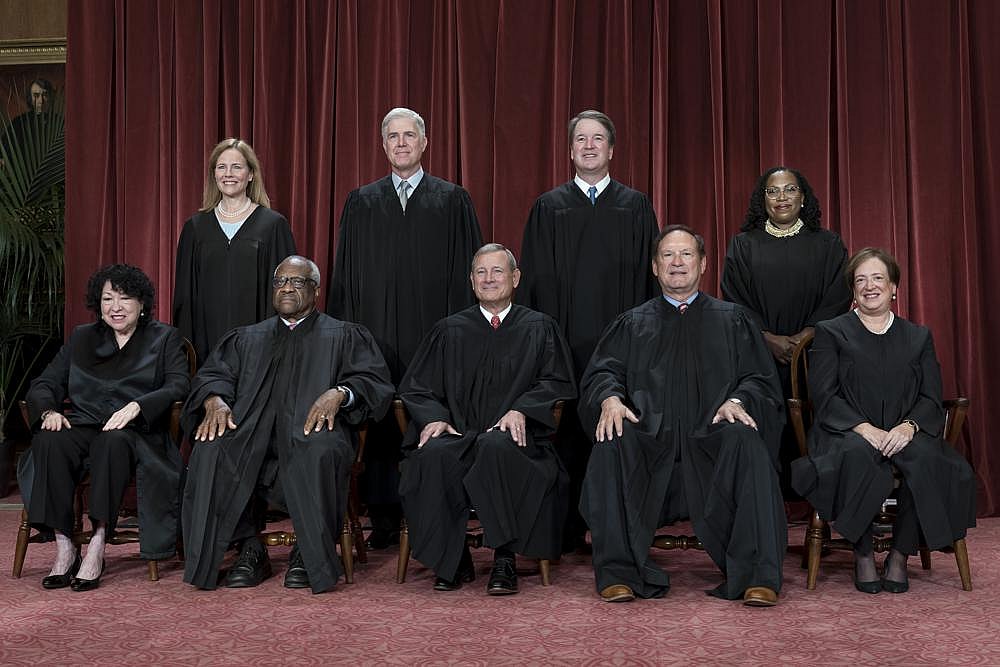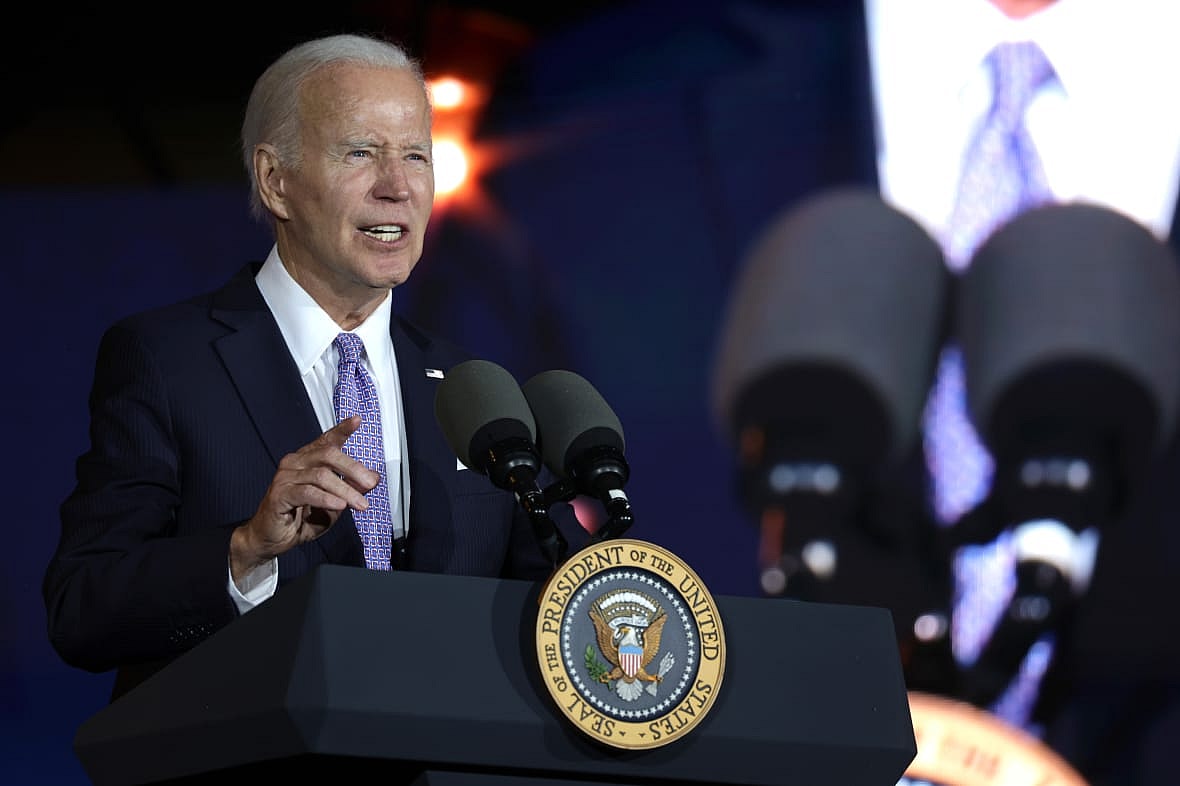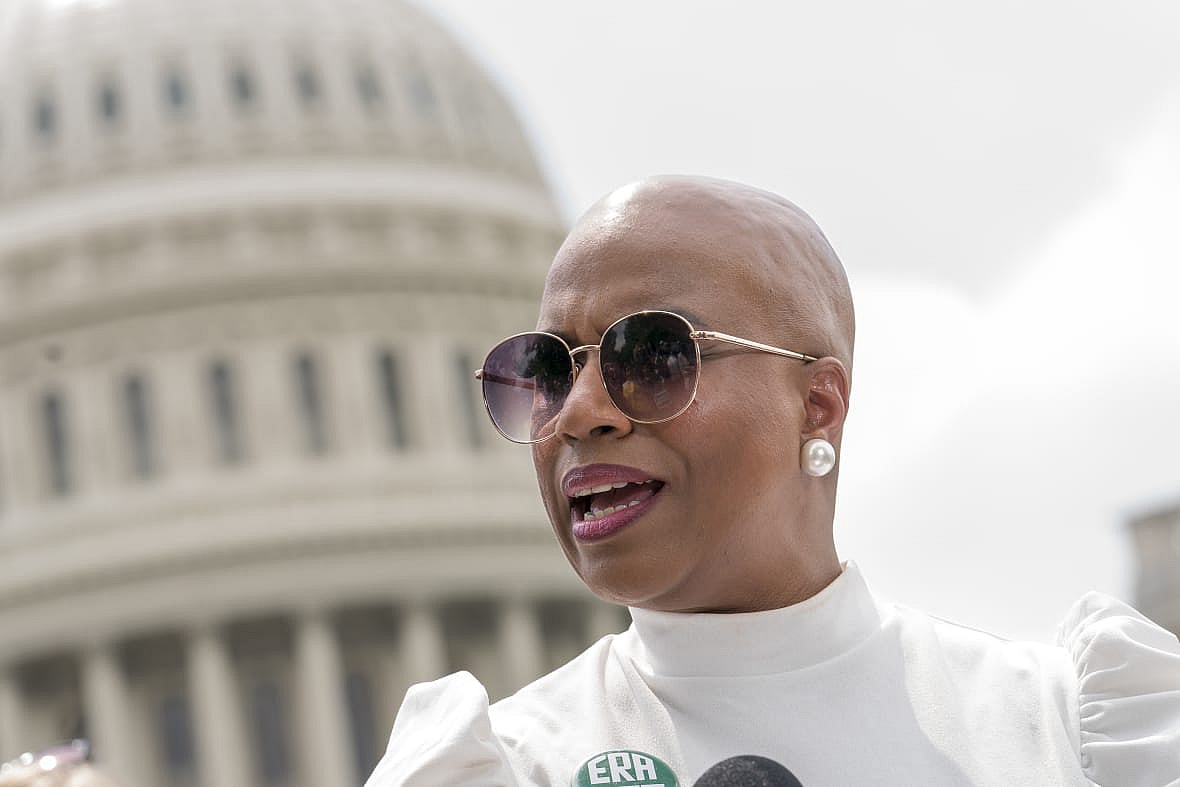Civil rights leaders blasted the Supreme Court for its decision to end affirmative action from the college admissions process.
Shortly following the ruling, civil rights groups, such as the Lawyers’ Committee for Civil Rights Under Law, Leadership Conference on Civil and Human Rights, and the Legal Defense Fund, held a press conference near the Supreme Court.

Damon Hewitt, president and executive director of the Lawyers’ Committee for Civil Rights Under Law, said, “Today’s decision threatens to make higher education less accessible, less equitable, and less attainable for students of color.”
David Hinojosa, litigator before the Supreme Court and director of the Educational Opportunities Project, condemned the conservative justices’ decision.
“Race-conscious policies were created to mitigate centuries of wrongdoings against people of color and to bring students of all races and backgrounds together,” said Hinojosa. “It is one of the greatest ironies that the Court has undermined such policies by holding UNC’s and Harvard’s programs unlawful.”
President Joe Biden also criticized the Supreme Court for its decision to remove affirmative action from the college admissions process.
During remarks Thursday afternoon, the president said, “We cannot let this decision be the last word.”
The president’s comments came just hours after the Supreme Court released an opinion in a 6-3 vote to omit race from the college admissions process, as theGrio previously reported.

Chief Justice John Roberts and Justices Clarence Thomas, Samuel Alito, Neil Gorsuch, Brett Kavanaugh and Amy Comey Barrett banned together to eliminate race as a factor in the college application process.
The justices heard oral arguments last fall in two cases; Students for Fair Admissions v. University of North Carolina Chapel Hill and Students for Fair Admissions v. Harvard College.
Students for Fair Admissions, led by conservative legal strategist Edward Blum, filed lawsuits alleging the University of North Carolina at Chapel Hill and Harvard College discriminated against white and Asian Americans while Black and Latino students were given preferential treatment, as theGrio previously reported.
Nadine Sila, a demonstrator standing in front of the Supreme Court following the ruling, told theGrio that she was upset with Justice Clarence Thomas’ response to the affirmative action cases.
“Clarence Thomas was an affirmative action higher,” she said. “He can benefit from affirmative action, but nobody else can.” She added, “Every other Black person needs to pull themselves up by the bootstraps.”
Liberal Justices Ketanji Brown Jackson, Sonia Sotomayor and Elena Kagan voted to keep affirmative action in the college admissions process and issued a dissent stating that its removal will exacerbate the wealth gap and have dire consequences for people of color.

“Turning back the clock (to a time before the legal arguments and evidence establishing the soundness of UNC’s holistic admissions approach existed), the Court indulges those who either do not know our Nation’s history or long to repeat it,” read the dissent.
It continued, “[Affirmative action is] still needed—for the general public good—because after centuries of state-sanctioned (and enacted) race discrimination, the aforementioned intergenerational race-based gaps in health, wealth, and well-being stubbornly persist.”
Following the release of the highly-anticipated opinion, many congressional members criticized the conservative-majority court.
U.S. Rep. Steven Horsford, Congressional Black Caucus chairman, D-Nev., issued a statement condemning the Supreme Court’s decision.
“By delivering a decision on affirmative action so radical as to deny young people seeking an education equal opportunity in our education system, the Supreme Court has thrown into question its own legitimacy,” said Horsford.
He added that Black Americans “have seen backlash to progress many times throughout our nation’s history.” He continued, “We didn’t stop fighting for equality then, and we won’t stop now because too much is at stake to allow extremists to turn back the clock on progress.”
In a statement obtained by theGrio, U.S. Rep. Ayanna Pressley, D-Mass., said that affirmative action has been critical in “confronting the legacy of anti-Black racism and discrimination still present in higher education.”

“Today’s decision by the far-right extreme Supreme Court will only exacerbate the systemic oppression that has barred Black, brown, and the other marginalized students from equitable opportunities,” said Pressley.
She added, “With this extremist Supreme Court demonstrating time and again its contempt for our most vulnerable, we must expand the court to build its integrity and bring balance to the bench.”
For months many called on the Supreme Court to either adopt a code of ethics or expand the number of justices to restore fairness and balance, as theGrio previously reported.
In an earlier interview with theGrio, Alencia Johnson, Democratic strategist and founder and chief impact officer at 1063 West Broad, said that by expanding the court, “justices will have to look at precedents and set their personal and political beliefs aside” when ruling on behalf of Americans.
TheGrio is FREE on your TV via Apple TV, Amazon Fire, Roku and Android TV. Also, please download theGrio mobile apps today!

